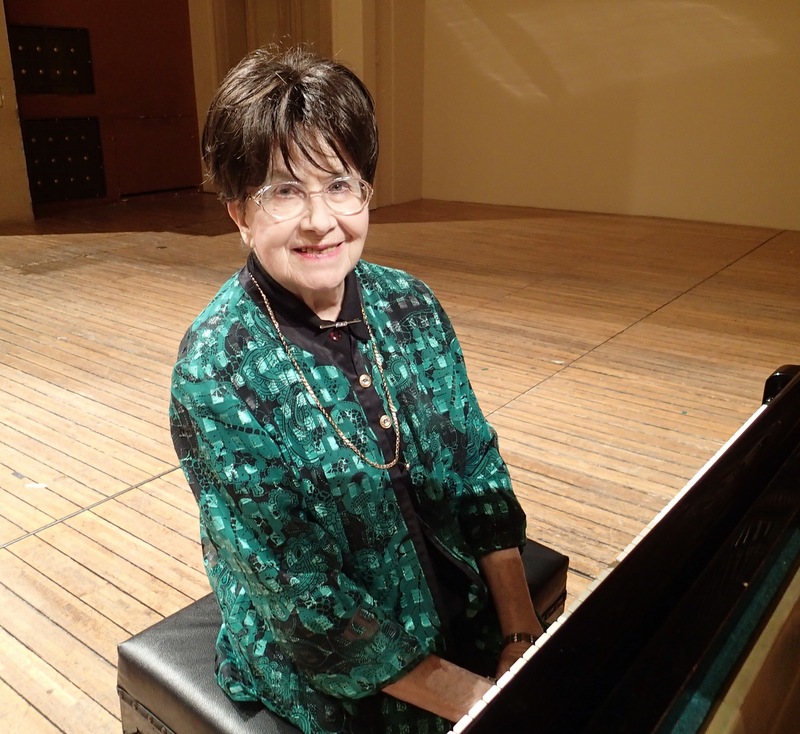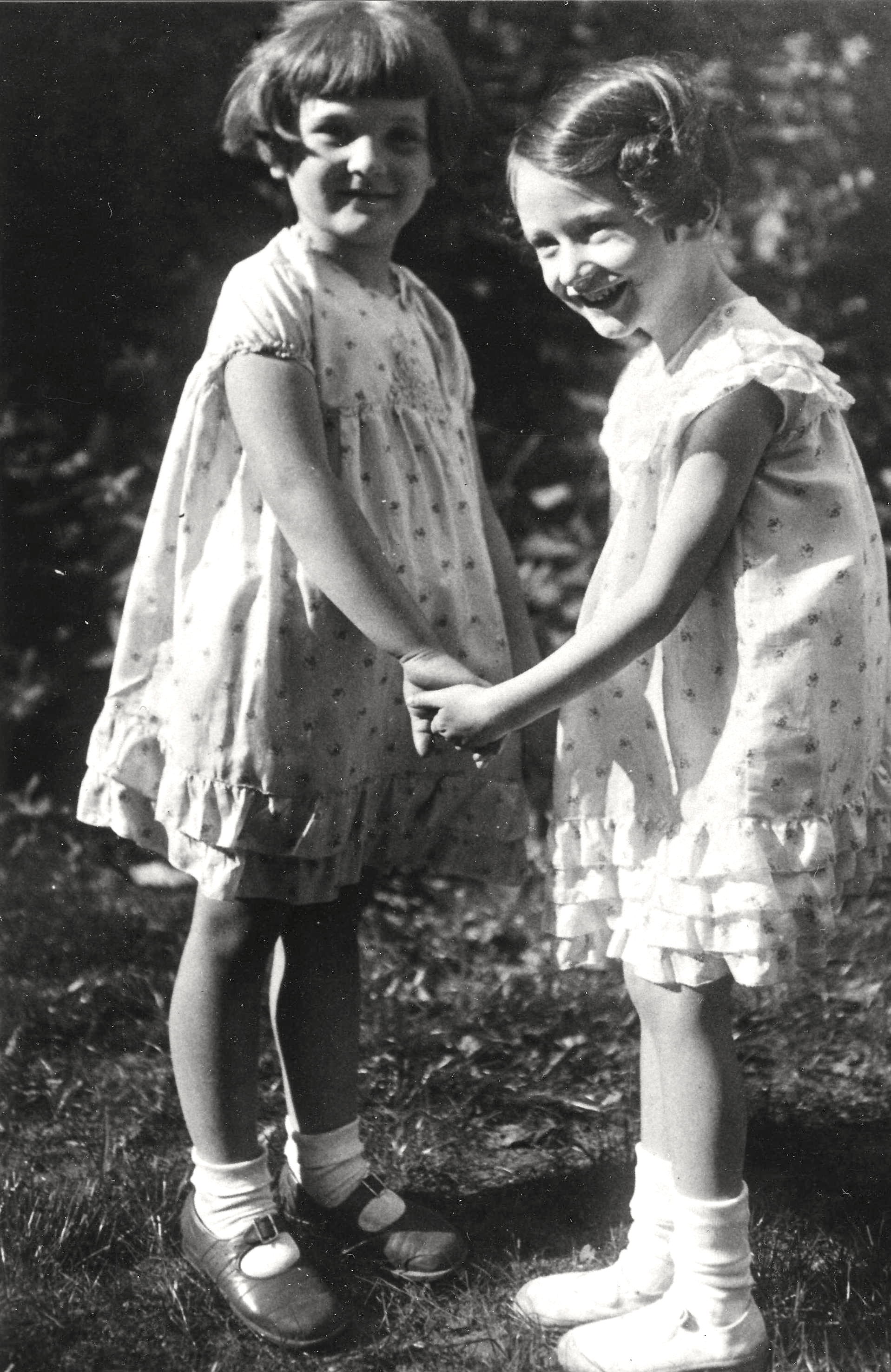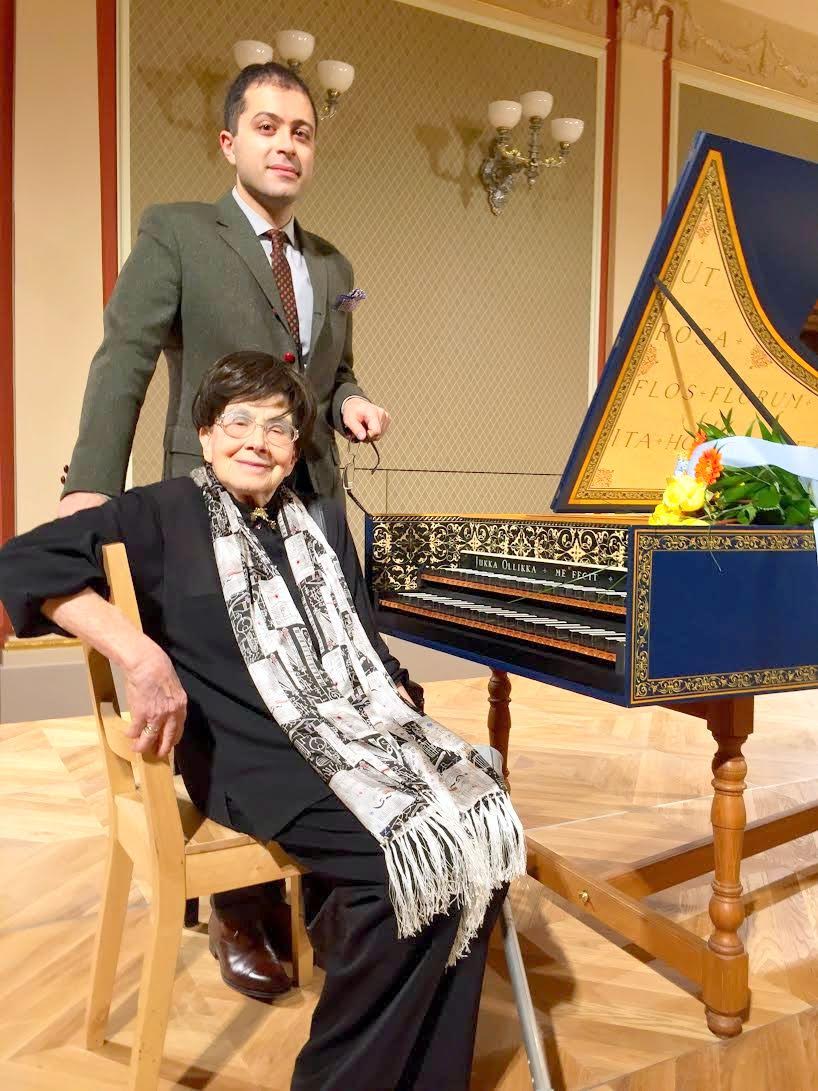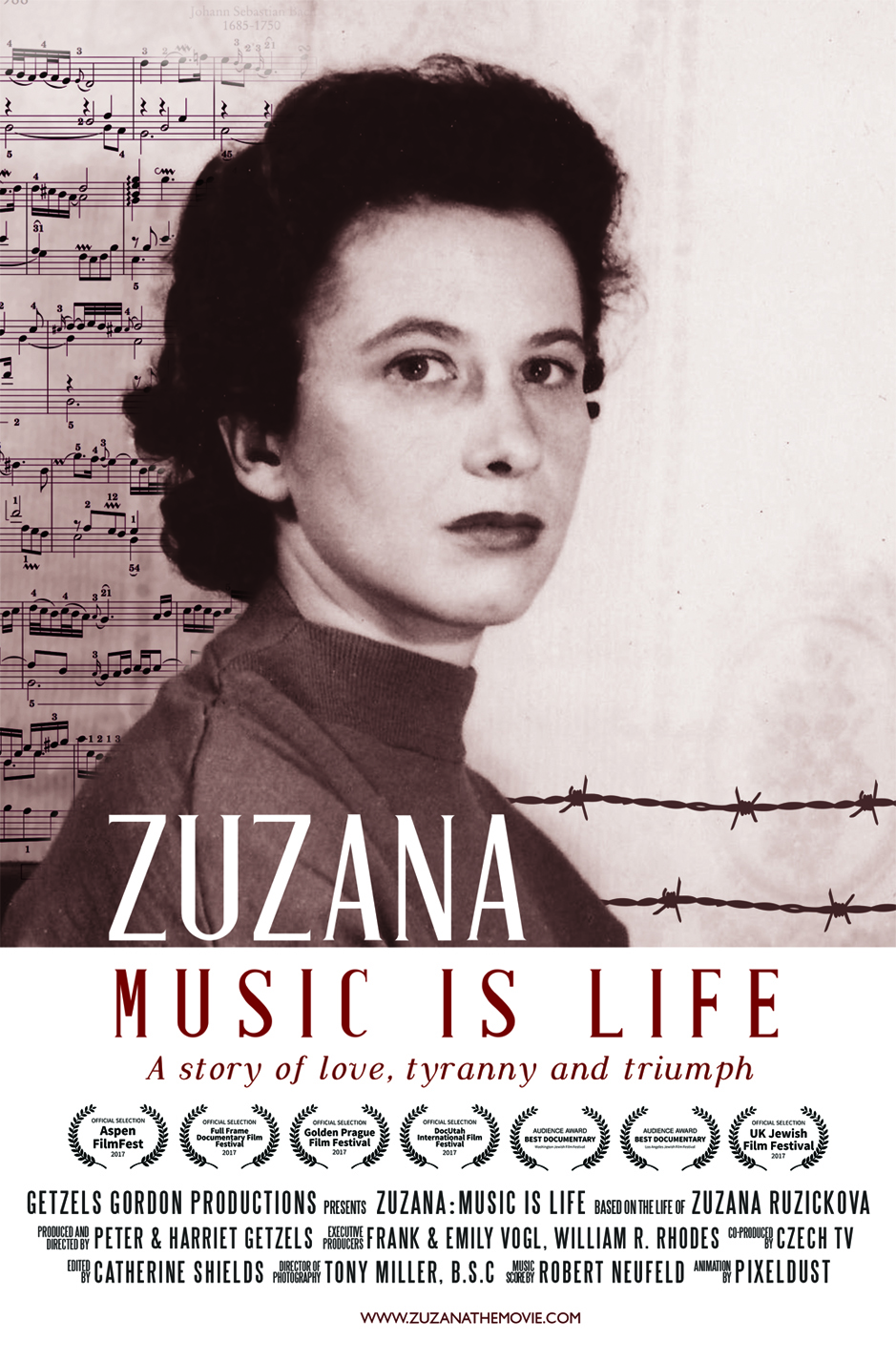An award-winning documentary produced and directed by Harriet and Peter Getzels, Executive Producers, Emily Vogl, Frank Vogl and William R. Rhodes in loving memory of Louise Tilzer Rhodes. The sponsor of the film is The Viktor Kalabis & Zuzana Ruzickova Foundation with generous support from good friends.
The Foundation aims to secure as wide public screening of this award-winning film as possible, in the United States and across the world. If you would like more information about screening the film at a conference, a school, a university or music conservatory, in an arts or other cultural institution, a historical society or religious organization, then please CONTACT US.
The film has been shown internationally and versions with sub-titles in Spanish, German, Czech, Korean, Japanese, are currently available.
The film – the story of a young Czech musician persecuted and battered by the horrors of 20th century Europe, and how her passion for classical and baroque music, – and Bach in particular – helped her to survive and drove her to become one of the greatest international harpsichordists of the last 60 years.
“Her story sounds like a movie. Now, it is one." – Anne Midgette in The Washington Post, May 21 2017. Zuzana says in the film: “When people ask me how I was able to survive, I always say, ‘It was a hundred miracles,’” On her 90th birthday, the BBC interviewed Zuzana and noted: “Talking to Ruzickova, you feel anything is possible. Happy birthday, then, to one of the wonders of the musical world,” BBC Magazine.
Education
Education is at the core of the Viktor Kalabis & Zuzana Ruzickova Foundation’s mission. The film can contribute importantly to education on many fronts and we strongly encourage all visitors to this website to consider proposing suggestions for the screening of the film, possibly with expert discussions to follow. We believe there is great potential interest in film screenings at, for example, music conservatories, schools and universities, museums, religious institutions, associations of educational professionals, community centers, and at film festivals.


Human Rights, Authoritarianism, and Dignity
HOLOCAUST: Dagma and Zuzana were cousins, neighbors and inseparable friends – until, at the age of 14, the Nazis imprisoned them. Zuzana tells the story in the film and recalls how in April 1945, after a separation of more than three years, she learned from the British army who liberated Bergen-Belsen camp, that Dagma was in a hospital ward. Zuzana spent the last three days of Dagma’s life at her side as she died of typhus.
Today, the Holocaust is being forgotten. Data shows a compelling need for greater efforts to teach all the lessons of the Holocaust. Zuzana: Music Is Life makes an important contribution to this endeavor.
DICTATORSHIP: As Zuzana recalled in the film, marrying Viktor in 1952 was “extremely dangerous.” They refused to join the Communist Party in Czechoslovakia. Viktor was seen as suspicious by the authorities for his political views. He faced even greater danger by being viewed as a ‘White Jew’ – a non-Jew marrying a Jew. Anti-Semitism prevailed. Nevertheless, Viktor was determined and they married.
The film highlights the anti-Semitic show trials with archival film and with brilliant excerpts from the opera “Tomorrow There Will Be…” by the film’s special advisor and this Foundation’s board member Ales Brezina. The opera features the trial of the Jewish politician Milada Horáková, who was hanged in 1950. In her interviews for our film, Zuzana describes in very personal ways the oppression for decades of the Czech people by the authoritarian regime. It reminds us of history from behind the “Iron Curtain” and teaches people today by serving as a warning of the enormous dangers of dictators and populist politicians who threaten democratic institutions.
DIGNITY: Zuzana was a human rights icon for our times. Her resistance, survival and her success reflect at heart her incredible ability to maintain her dignity and self-respect through the most horrendous of ordeals. Ruthless regimes succeed when they can break people, rob them of their self-worth and, in effect, dehumanize them. It is important for every generation to understand this. Zuzana’s story, as she tells it in this film, brings the vital issue to the fore – ultimately it is an uplifting film, because of her remarkable inner strength and sense of love and grace.
Music
Zuzana, as the film shows so well, was not only a magnificent acclaimed performer, but an extraordinary teacher. Music students everywhere will be inspired. Her last student, the internationally acclaimed harpsichordist Mahan Esfahani wrote an insightful article for The New Yorker, October 30, 2017, which included the following comments about Zuzana:
“To explain her would mean explaining how music is more than entertainment, how every faculty of the mind and the heart devoted to music is energy well spent, and how I would be willing to plan and, if needed, change the course of my life to come closer to the ideals that she represented… The idea that a piece should sound the way it did three hundred years ago was laughable to her—she always said, when we were studying them. It took me ninety years to understand Bach’s Goldberg Variations. If only I had ninety more; I’d still not know what to do with them… Her intellectual rigor and curiosity were peerless.”
In the Media
As the critics see it – articles from the Washington Post, US News and World Report, The Washingtonian
“The Sprit of Bach,” BBC Magazine (print edition) and shorter online version under the heading “The Miraculous Life of Zuzana Ruzickova”: BBC Magazine, December 19, 2016, based on a BBC Radio 4 interview.


From the American Bach Society, by Frank Vogl, fall 2017.
From The Times (London), October 16, 2016 – Profile of Zuzana
From Le Monde (Paris) December 5/6, 2016, Zuzana Ruzickova, des camps de travail à l’apaisement du clavecin
Gramophone Magazine (UK) – reviews Zuzana’s Complete Bach recordings, January 2017
From Harmonie magazine in Prague, December 2016 (in Czech)
The prime website for information on the film, hosted by Getzels Gordon Production can be found at www.zuzanathemovie.com.
View the website, learn about the international team that have made this film possible; catch up on the news; and connect with connect with the producers/directors. GETZELS GORDON PRODUCTIONS (G2) is a film company with a long track record of award-winning documentaries made in over 35 countries for British, American and European television. Their recent work includes a U.S Public Television series (PBS) called China’s Challenges; the highly acclaimed movie on immigration into the United States Harvest of Empire; the major PBS series, Closer To Truth – Cosmos, Consciousness and God, a global journey in search of the vital ideas of existence. Films by Harriet and Peter have won over 25 international awards including an Emmy Governor’s Award and two Emmy nominations.